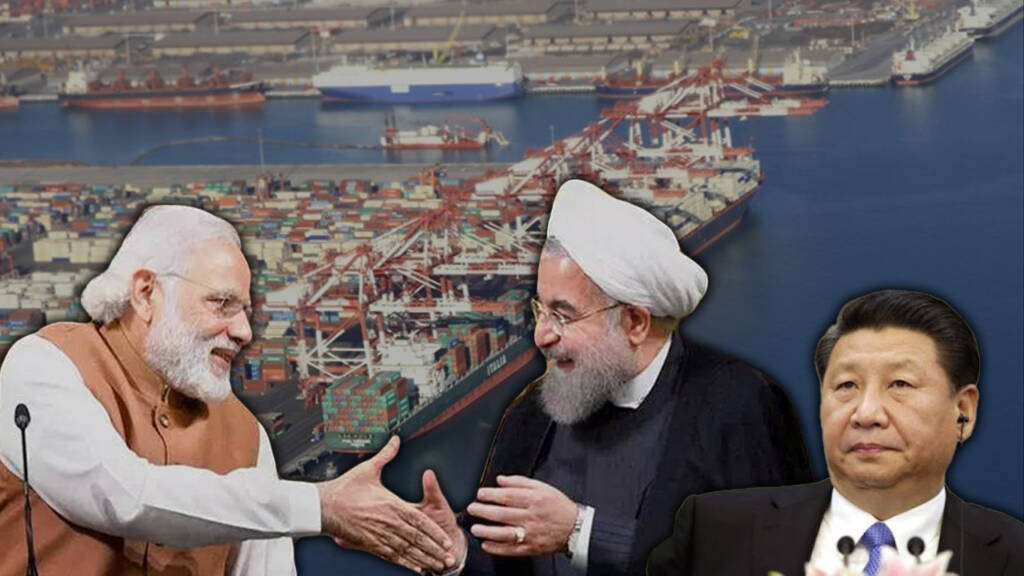With an almost certain change of guard on January 20th in the United States of America, and Joe Biden getting inaugurated the 46th President, geostrategic equations around the world are witnessing a visible upheaval. For India, the repercussions of Joe Biden taking over can be both constructive, as well as disadvantageous. Biden’s policy viz., China remains clouded with uncertainty to a large extent, although he has signalled to supporters that the paper dragon will continue to face the heat in the initial days of his Presidency. Yet, on a brighter note, India, Iran and Uzbekistan have stepped up efforts to strengthen cooperation and development with regards to the Chabahar Port.
In a recently held trilateral meet between the three countries, the utilization of the port for trade and transit purposes was discussed extensively, even as focus remained on making Chabahar Port the gateway of India to Central Asia, the Caucuses and consequently, Europe. Many believe that with a change of Presidential guard in the White House, the Chabahar port, work on which has been ongoing at a snail’s pace, will be the centre of major action by India, Iran and Uzbekistan.
It must be remembered that the Chabahar port plays a crucial foreign policy role for India, and achieves a power symmetry against an ever-belligerent China’s “string of pearls” strategy of encircling India from all sides. Yet, being situated in Iran, the Chabahar port was no exception to facing the heat of President Trump’s “maximum pressure policy” against Tehran, which caused tremendous economic ravaging of the Shi’ite country. Further, the Chabahar port, which could be an immediate geostrategic asset for India, got its development almost decelerated due to many terms and conditions laid out by the U.S. while granting exemption to India to invest in the port.
Read more: Chabahar Port: India’s gateway to Central Asia with Russia’s full backing is going to save 20% costs
With an incoming Biden regime, however, the U.S. is expected to go much softer on Tehran. Chatter suggests that the nuclear deal with Iran will be reinvigorated. An Iran-friendly regime in the U.S. will give a near-free hand to India to go about conducting its business at Chabahar in a manner it deems fit, with a multitude of partners no less. Importantly, it was only after a projected Biden win that Uzbekistan gave an ‘in principle concurrence’ to be a part of the International North-South Transport Corridor, an ambitious Indian plan to counter China’s BRI in Central Asia.
The International North-South Corridor (INSTC) is a multi-mode network of ship, rail, and road routes for transporting goods between India, Iran, Afghanistan, Azerbaijan, Russia, Central Asia, and Europe. The objective of the corridor is to increase trade connectivity between major cities such as Mumbai, Moscow, Tehran, Baku, Bandar Abbas, Astrakhan, Bandar Anzali, etc.
Effectively, an incoming Biden regime is paving the way for New Delhi to make heavy inroads into the Central Asian republics and Caucasian region, while also getting connected via a transport corridor to Europe. Historically, India has had close ties to Central Asia, which were snapped after the partition of the subcontinent in 1947, and further by the illegal occupation of Gilgit Baltistan by Pakistan in 1948. By using the Chabahar port in Iran, India is looking to bypass China’s client state – Pakistan in accessing Central Asia.
Investments into Chabahar port and development, in general, has taken a hit despite India being exempted by the U.S. from sanctions imposed on countries which engage with Iran. Investors, private players and developers alike have all been apprehensive about actively participating in the Chabahar project, given the sanctions-ridden state of the economy in Iran. Further, tensions have been peaking between Iran and the U.S. under a Trump administration, further making investors fear a breakout of military hostilities between the two countries.
Relations between India and Iran have not been in the best of health by far for the past three years, courtesy India’s decision of reducing transactions with Tehran owing to the US’ insistence. It was for this very reason that a miffed Iran had started work on the Chabahar-Zahedan rail line project that will connect the strategically located Chabahar port to the Afghan border, without India. As reported by TFIGlobal last month, however, Tehran has nudged India to help facilitate equipment for the crucial rail line.
Read more: Post US election, Iran finds hope in India again as it steps up engagement on Chabahar
It can therefore be seen that India and Iran are stepping up ties once again. Meanwhile, China has much to lose, even as Beijing and Tehran purportedly signed a $400 billion super-secretive military and intelligence deal recently. With a Biden administration at the helm of affairs in the U.S., and ties with India also beginning to repair at a fast pace, Tehran will not require any Chinese assistance whatsoever. Therefore, Beijing’s aims of subverting Iran like Pakistan are not about to fructify just yet.
